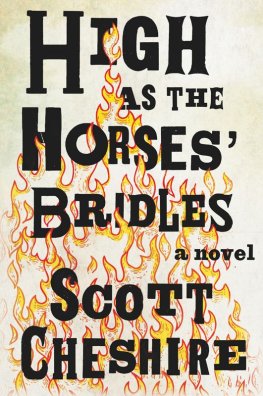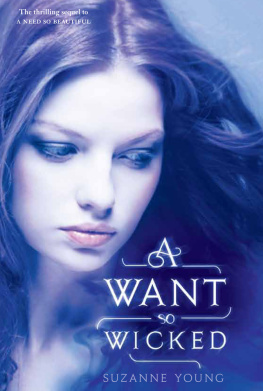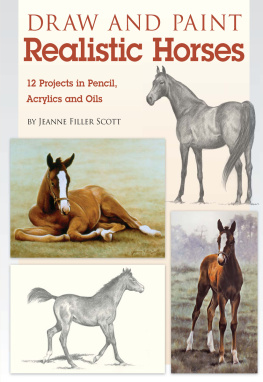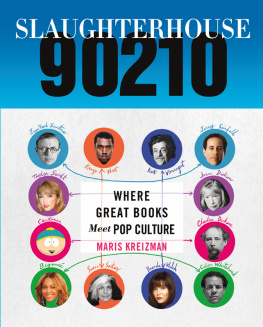Scott Cheshire
High as the Horses' Bridles
For Kate before, now, and after
Apocalypse is our history.
James Berger, Twentieth-Century Apocalypse: Forecasts and Aftermaths, Twentieth Century Literature, vol. 46, no. 4 (Winter 2000)
WOE TO THE LAND WHOSE CHILD IS KING
They sit.
Below a painted ceiling looming high overhead, they sit and they wait. The ceiling yawns, stretching like one vast wing warming oh so many eggs.
See the stars, the affixed points of light, the glowing striated mists of silvery cloud. See the night clouds lolling, drifting above their heads across an expanse of blue plaster sky. Like vapors released, dust climbs blue-gray and upward like prayers.
Now, see the ceiling stretch outward and above the seated people, this for all of one hundred feet, over and above the lettered rows A through Z, double-A and onward on and above, across the grand room of ceramic, marble, and wood. Heels click and rubber soles pat, the sounds bouncing off here, and there, up through open space like swimmers ascending for air. And above every head, the sky stretches on toward brassy balcony railings, sloping down from the armpit arch of the ceilings rounded center. Steeping downward, over the balcony railing not even one foot resting there then, just as youd expect, the tiered seating rises even higher. Their heads are closer to the ceiling up there, with hair well combed and slicked.
Clip-on ties by the hundreds, a few full Windsor knots and occasional spit-shined wingtips on the congregation elders, the men who drove their families. No buses, no trains, not ever. They are in the aisle seats, more leg room. The wives ask their husbands, Are you comfortable?
In the central seats, see the suit jackets and ill-fitting corduroy, all very tasteful and clean, but not new, not even close. Theres no small amount of pride in their faces, and their hand-me-down clothing. The black kids from Jackson Heights, the Hispanic kids from Ozone Park, and the pink-faced Irish from Astoria will rush the aisles come intermission, and theyll say, Excuse me, stepping on the elders fancy shoes. They will parade the building halls and call to each other, cruising, and flirting, asking which church the cute boy goes to. And the Indian girls from Richmond Hill, the Korean boys from Flushing. Their parents will gather for lunch and then approach the elder men, and pay them proper respect. Mothers wear skirts that reach below their knees. Any shorter and they risk a talking-to.
But first they sit. They face the empty stage, awaiting the opening song and prayer, the first speaker of the day to take the stage.
Not just any stage beneath any painted sky. Up there, youll find no less than the heavens of Venice. You want proof the famed Rialto Bridge, one tenth of its original size, a reconstruction, spans the top width of the stage. The favorite bridge in a City of Bridges, burned once, twice fallen, and both times a crowd collapsed with it. Down they fell under the waters of Venice. Which means the audience, here, in the grand Queens Howard Theater, tucked on a wide city street between a mechanics garage and a Mexican takeout, are assembled in something like a dry canal. More than four thousand worshippers sitting, and anxiously waiting for the days first prayer for His Kingdom Come on Earth as It Will Be in Heaven, and the long falling rain of salvation, falling stars, blackened sun, and fiery burning rain, for the coming of His Holy War and Christ. They pray for Armageddon, End of Ends, Great Bringer of all meaning in Death. And the worshippers are both a sum and parts, a throng, a sea of people beneath a decorative replica of the real-world Rialto. But, sure as any day, you can walk this bridge spanning the Howards stage, and some actually do, mostly maintenance men tending to the delicate bridges woodwork. Like a painted crown it spans the stage beneath the stars of Venice, City of Bridges, of Water, of Light.
Howard Theater, Theater of Lights, every heavenly star is here.
What does all this say about us sitters? There is a kinship with the city itself, its ever-reconfigured paths, boatways, and alleyways, all searching out new ways of seeking, just the right place for New Venetians. Heirs of the citys favorite son, Marco Polo, poster boy for journeyers, brave and faithful seeker of unknown truths, seer of this world, and carrier of Holy Oil, gift giver of Christ to the yellow men. More than four thousand of his heirs, sitting here, beneath a faux Rialto, awaiting a description of this world. And the next.
* * *
Backstage, behind the hanging curtain, the boy is clearly nervous. Hungry and nervous. He cant keep still. Hes done nothing like this before, and certainly not here. Worse, he needs to go to the restroom. Feet shuffling in place, had way too much orange juice, he tries to sneak a look toward the front rows where he saw his parents seated earlier this morning. They always sit up front at church, something Dad practically cant not do. Up front, as close as they can, Dad on the aisle, Mom beside. A pale vessel. Dad has even asked people to move before, said he cant concentrate sitting anywhere else. Sometimes lately hes been sitting, and then standing again, and then sitting. Standing. Like he cant help himself, trying to get his place relative to the stage just right. There they are: Mom with her long red curls, and Dad wearing a stern face, looking like hes in charge. But whos in charge anymore? Just this morning they had a fight and told Josiah to please leave the kitchen.
From the stage, the great room seems even bigger than it was this morning, how many stories tall, and the ceiling feels like a window into dark and never-ending space. How spaceships look from the inside, he figures. When he first walked in and his parents looked for their seats, and he stood there, looking up, the great sky opened above him. He imagined two suns, just like in Star Wars, and a butter-yellow moon between them. A rocket shooting like a star. But now the room is bigger, much bigger than what his brain can comprehend, because the place is full of people. The people make the ceiling seem higher. The lamp bulbs looming, glowing and alive with light, hot and actual. Like the roof has been blown, and here is this place filled with Dad said the unthinkable number this morning, in the station wagon, on the way here. Say it with me slowly, son: four thousand people. Of course, hes heard the number before, but not in any way like this, not seeing it made real, four thousand bodies. Hes certainly never spoken to so many before. He goes cold as he peeks through the curtains. He sees the pastor, Elder Brother Kizowski, approach the microphone and check his wristwatch as he walks. The stragglers are taking to their seats.
Josiah remembers a blueberry muffin, is sure he saw a tray of them this morning, out there, somewhere, maybe by the food tables.
A quick run to the restroom, and maybe he can find that tray of muffins. Feet shuffling, he needs to get his fathers attention. He needs permission to leave the stage, so he can go to the bathroom. He can never seem to hold his fathers attention, not for very long anyway, and especially when its not about worship. Even when his father does talk with Josiah about God, its almost like the boy isnt there. At least this is how he feels, like his father is looking right through him, to some other place and some other time, like hes seeing someone else entirely. Josiah wants his father to see him. Twelve years old, light as twigs, he spreads the curtains and eases his head forward, onstage, the cloth falling around him like a robe. Josiah, the size of a full-breasted bird, of a sapling elm, made small by the height of the hanging curtains, fire tongues reaching up to darkness.








